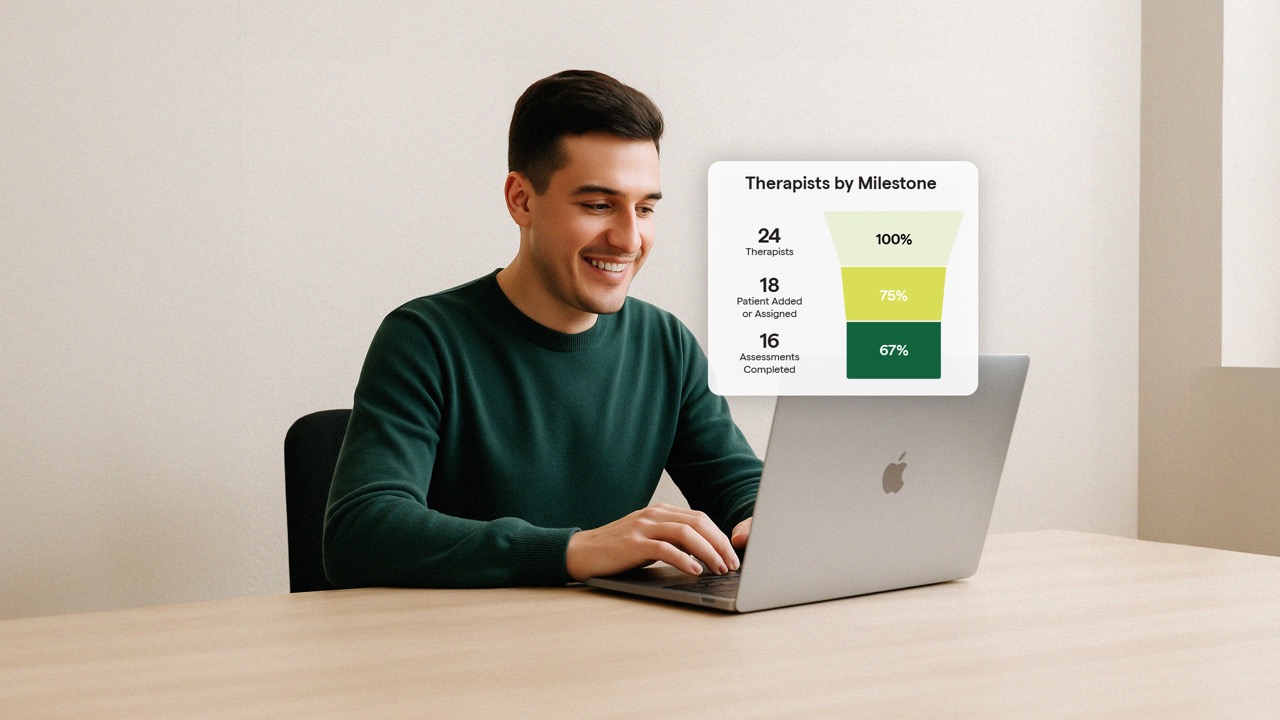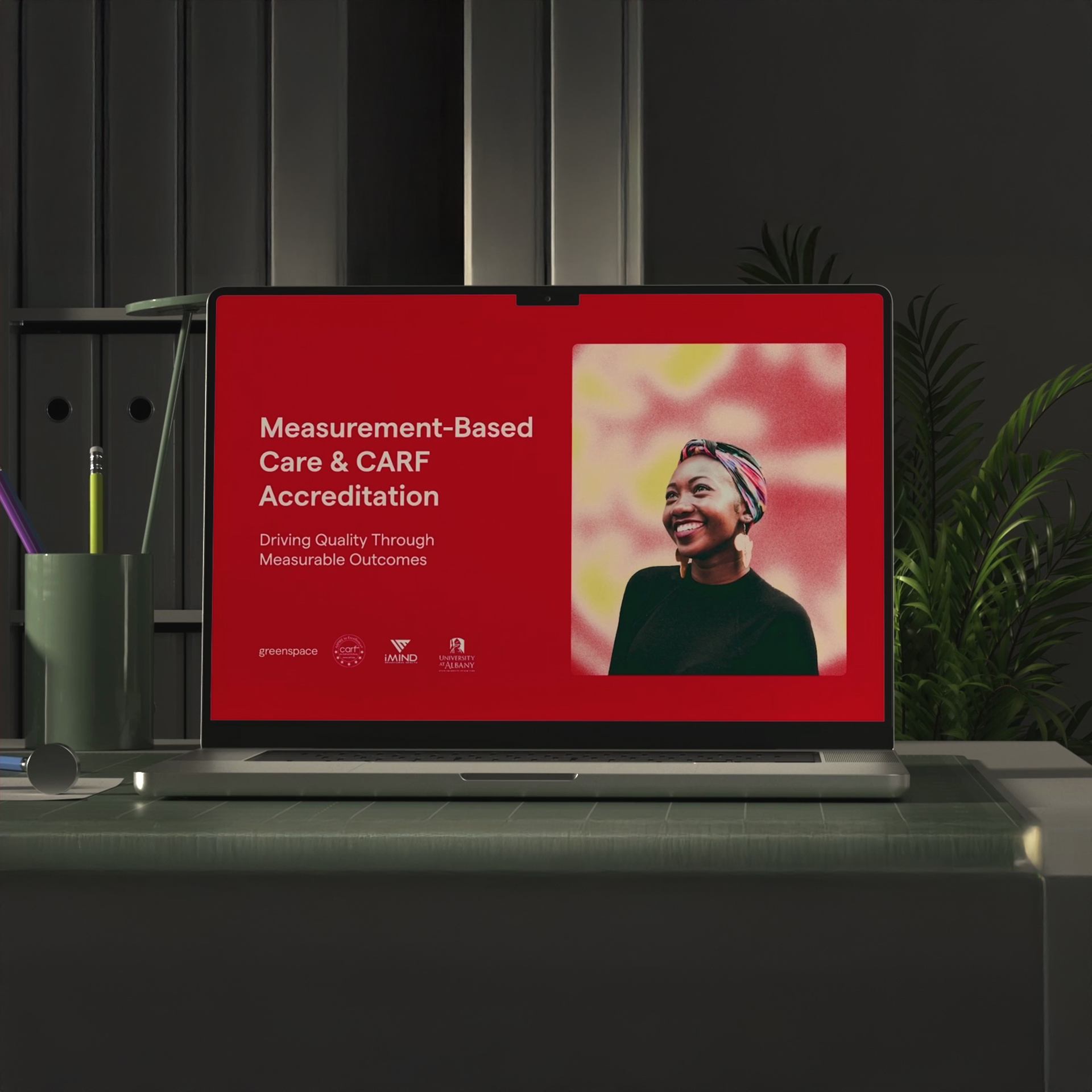
With advancements in technology and science, we can measure almost anything – daily steps, sleep cycles, quality of sleep, blood sugar levels, heart rate and even our fertility. These advancements give us feedback about what is happening in our bodies so we have better insights into our physical health and the ways we can improve it. But what about mental health?
In September 2018, the Canadian Psychological Association (CPA) released a special task force report to provide guidance to mental health practitioners as well as policymakers, educators, and funders of psychological interventions regarding the need to measure outcomes and client progress. The report findings remain significant three years later and demonstrate the meaningful impact Measurement Based Care (MBC) can have on providing high quality, evidence-based treatment.
The Report summarizes the key research in support of outcome and progress measurement, and also highlights key considerations for practitioners when implementing MBC into practice. Some of the key takeaways are summarized below:
- Measuring, monitoring, and providing feedback to therapists allows them to be more responsive to clients during each individual session, and throughout care. It also provides clients with a better understanding of their own mental health which leads to higher engagement in therapy.
- Research on progress measurement has demonstrated the clear impact it can have on improving client outcomes. A meta-analysis of patient feedback systems by Lambert and Shimokawa (2011) found that outcome measurement with feedback provided to the therapist was moderately and significantly associated with positive client outcomes in psychotherapy. Notably, the number of psychotherapy clients who deteriorated was cut in half simply by implementing a progress measurement system. When symptoms are consistently measured throughout treatment, it becomes easier for both the clinician and client to recognize when treatment objectives are not being met (UBC Department of Psychiatry). MBC allows clinicians to modify treatment plans which leads to improved therapy outcomes and better client engagement.
- Psychologists, and most other professionals who provide psychotherapy services, have an ethical obligation to evaluate the services they provide and continually strive to improve quality of care. The Canadian Code of Ethics for Psychologists (2017) states that psychologists are expected to: “monitor and evaluate the effect of their activities, record their findings and communicate new knowledge to relevant others”.
- For psychotherapists, collecting valid information about progress and outcomes through psychometric assessment is a key component to providing evidence-based care that is relatively free of bias. MBC can support clinical judgement by providing powerful objective and client-reported data which offers meaningful insight into care, improves client-clinician communication, and assists a clinician in early identification of symptom improvement and deterioration. Additionally, MBC is also an opportunity for organized networks of clinical practice to engage in enhanced program evaluation and psychotherapy research.
Despite the importance of MBC and it being a necessary component of providing evidence-based treatments, only about 12% of Canadian psychologists currently implement it into their practice (CPA,2018) This figure is well behind the United States where approximately 39% reported regularly evaluating client progress in treatment (CPA, 2018). In light of these shortcomings, the CPA task force made recommendations for implementing MBC in clinical settings:
- Psychologists and psychotherapy practitioners, whether in a private practice or part of an agency or institution, should routinely obtain outcome data on patients they are treating by using psychometrically sound scales.
- At a minimum, psychotherapists should assess client outcomes, preferably from the client’s perspective and/or from a third-party perspective, before and after providing services. However, it is preferable to assess outcomes continually throughout treatment in order to obtain consistent data, improve client engagement and recognize real-time changes in symptomology as they occur.
- As part of continuing education, psychologists and psychotherapists should seek out and receive training on how to implement and use outcome and progress measurement in their practices.
The movement around MBC continues to gain momentum, as the research around it clearly demonstrates that collecting meaningful data on client treatment can lead to better mental health outcomes, increased client-clinician engagement, stronger therapeutic alliances, and an overall mental health care system that provides high quality, evidence-based treatments for individuals seeking care. Greenspace makes implementing MBC easy, efficient, and effective. If you’re interested in learning more about MBC or how other organizations have used Greenspace to transform their measurement process and improve clinical outcomes, you can book a call with one our our implementation experts or send us an email at info@greenspacehealth.com.
References
Canadian Code of Ethics for Psychologists, Fourth Edition (2017). Canadian Psychological Association. Retrieved from: https://cpa.ca/docs/File/Ethics/CPA_Code_2017_4thEd.pdf
Lambert, M. & Shimokawa, K.(2011). Collecting Client Feedback. Psychotherapy Theory Research Practice Training, 48(1): 72-79. doi: 10.1037/a0022238
UBC Department of Psychiatry (2020).Measurement-Based Care. Retrieved from: https://workingwithdepression.psychiatry.ubc.ca/measurement-based-care-2/












